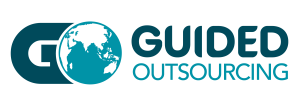Tax season.
Just the mention of it can induce a wave of stress, reliving memories of late nights spent scrambling for receipts and deciphering complex forms. But what if next year, tax season wasn’t a monster lurking in the shadows, but a well-organized neighbor you barely have to acknowledge? With a little pre-season planning, you can approach the next tax season with confidence and (dare we say) even a hint of excitement.

This article equips you with a comprehensive guide to tackling taxes strategically, with options for both the DIYer and the time-strapped individual or business owner. We’ll explore key areas of preparation, highlight potential pitfalls, and subtly nudge you towards the ultimate stressbuster: outsourcing your tax worries.
Why You Should Do Pre-Season Planning
Think of tax season as the championship game. Pre-season planning translates to months of focused training – gathering information, understanding deductions, and familiarizing yourself with the tax landscape. Taking proactive steps can avoid the last-minute scramble and potential errors that come with cramming everything into a few frantic weeks.

Here’s why getting a head start is crucial:
- Peace of Mind: Imagine facing tax season with a well-organized filing system and a clear understanding of your deductions. Sounds sweet, right? Proactive planning reduces stress and gives you the confidence to tackle tax forms with a clear head.
- Maximize Deductions: Throughout the year, you might miss out on claiming valuable deductions if you’re not actively tracking them. Early planning allows you to gather documentation for everything from charitable contributions to business expenses.
- Avoid Penalties: Missing deadlines or making errors can lead to hefty penalties. By getting organized early, you ensure ample time to ask questions, seek professional help if needed, and file accurately.
Tailoring Your Tax Prep Strategy
Whether you’re a seasoned entrepreneur or a solo freelancer, your tax preparation needs will vary. Here’s a breakdown of key areas to focus on, depending on your situation:

For Businesses:
- Embrace the system
- Invest in a robust accounting system that tracks income, expenses, and mileage effortlessly. Consider cloud-based options for easy access and real-time updates.
- Categorize Your Expenses
- Develop a system for categorizing business and personal expenses meticulously. This ensures you only claim legitimate business deductions.
- Stay Up-to-Date
- Familiarize yourself with tax law changes impacting your business. Resources like the IRS website (https://www.irs.gov/) and consultations with a tax professional can keep you informed.
- Consider Estimated Tax Payments
- Depending on your business structure and projected income, you may be required to make estimated tax payments throughout the year. Consult your accountant to determine your specific needs.
- Prepare for Payroll Taxes
- Ensure you’re withholding the appropriate amount of federal, state, and local income taxes from your employees’ paychecks. Timely payments avoid penalties and headaches.
For Individuals:
- Gather Your Arsenal
Start collecting all relevant documents – W-2s, 1099 forms, receipts for charitable donations, and documentation of medical expenses.
- Understand Your Withholdings
Review your W-2s to ensure the correct amount of income tax is being withheld throughout the year. Adjust withholdings if necessary.
- Maximize Deductions
Explore deductions for home office expenses, student loan interest, and charitable contributions.
- Consider Itemized Deductions
If your total itemized deductions exceed the standard deduction, itemizing can save you tax dollars. However, this requires meticulous record-keeping.
- Plan for Major Life Events
Getting married, having a baby, or buying a house can impact your tax situation. Research tax implications of such events and factor them into your planning.
The Outsourcing Advantage
Let’s be honest, tax season can be a daunting beast, even with the best preparation. This is where outsourcing to a qualified tax professional can be a game-changer. A qualified tax professional can:

- Save You Time
Imagine the hours you’ll reclaim by handing over the reins. Focus on your core competencies and let your tax advisor do what they do best.
- Maximize Your Refund (Legally)
Tax laws change frequently. Skilled professionals stay updated and ensure you take advantage of every legitimate deduction and credit available.
- Minimize Audit Risk
Tax professionals are trained to identify potential red flags and ensure your return is compliant. This reduces the risk of an audit and the associated stress.
- Provide Peace of Mind
Sleep soundly knowing a qualified professional is handling your most sensitive financial information.
The Takeaway
More than saving time or money, it is also about investing in your sanity and overall well-being. Imagine not having late nights spent on forms or searching for missing receipts.
So, this pre-season, consider outsourcing and investing in your future tax well-being. Research qualified tax professionals, schedule consultations, and find someone you feel comfortable and confident with. If you’re looking for a reliable outsourcing partner for your tax or other accounting needs, schedule a free consultation with Guided Outsourcing.
Tax season doesn’t have to be a nightmare. With a little pre-season planning and the potential of outsourcing, you can approach the next tax season with a sense of control.

